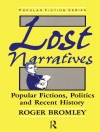Essays shedding fresh and significant light on Gower’s poetry, major and minor, as it was received, read, and re-produced in England and in Iberia from the fourteenth to the twentieth centuries.
John Gower’s great poem, the
Confessio Amantis, was the first work of English literature translated into any European language. Occasioned by the existence in Spain of fifteenth-century Portuguese and Spanish manuscripts ofthe
Confessio, the nineteen essays brought together here represent new and original approaches to Gower’s role in Anglo-Iberian literary relations. They include major studies of the palaeography of the Iberian manuscripts;of the ownership history of the Portuguese
Confessio manuscript; of the glosses of Gowerian manuscripts; and of the manuscript of the Yale
Confessio Amantis. Other essays situate the translations amidst Anglo-Spanish relations generally in the fourteenth and fifteenth centuries; examine possible Spanish influences on Gower’s writing; and speculate on possible providers of the
Confessio to Philippa, daughter of John of Gaunt and queenof Portugal.
Further chapters broaden the scope of the volume. Amongst other topics, they look at Gower’s use of Virgilian/Dantean models; classical gestures in the Castilian translation; Gower’s conscious contrasting of epic ideals and courtly romance; nuances of material goods and the idea of 'the good’ in the
Confessio; Marxian aesthetics, Balzac, and Gowerian narrative in late medieval trading culture between England and Iberia; reading the
Confessio through the lens of gift exchange; literary form in Gower’s later Latin poems; Gower and Alain Chartier as international initiators of a new 'public poetry’; and the modern sales history of manuscript and earlyprinted copies of the
Confessio, and what it reveals about literary trends.
Ana Sáez Hidalgo is Associate Professor at the University of Valladolid, Spain; R.F. Yeager is Professor of English and World Languagesand chair of the department at the University of West Florida.
Contributors: María Bullón-Fernández, David R. Carlson, Siân Echard, A.S.G. Edwards, Robert R. Edwards, Tiago Viúla de Faria, Andrew Galloway, Fernando Galván, Marta María Gutiérrez Rodríguez, Mauricio Herrero Jiménez, Ethan Knapp, Roger A. Ladd, Alberto Lázaro, María Luisa López-Vidriero Abelló, Matthew Mc Cabe, Alastair J. Minnis, Clara Pascual-Argente, Tamara Para A. Shailor, Winthrop Wetherbee
Spis treści
Introduction – Ana Saez-Hidalgo and Robert F. Yeager
Castilian Script in the Iberian Manuscripts of the
Confessio Amantis – Mauricio Herrero Jiménez and Marta María Gutiérrez Rodríguez and Tamara Pérez-Fernández
Provenance Interlacing in Spanish Royal Book-Collecting and the Case of the
Confessio Amantis [RB MS II-3088] – Maria Luisa Lopez Vidriero
Inglorious glosses? – Alastair J Minnis
The Yale Gower Manuscript, Beinecke Osborn MS fa.1: Paleographical, Codicological, Technological Challenges and Opportunities – Barbara A Shailor
The English Literature of Nájera [1367] from Battlefield Dispatch to the Poets – David R. Carlson
At the Nájera Crossroads [1367]: Anglo-Iberian Encounters in the Late Fourteenth Century – Fernando Galván
Spanish Literary Influence in England: John Gower and Pedro Alfonso – Robert F. Yeager
From Norwich to Lisbon: Factionalism, Personal Association, and Conveying the
Confessio Amantis – Tiago Viúla de Faria
Gower’s Second Cursus – Robert R. Edwards
Remembering Antiquity in the Castilian
Confessio Amantis – Clara Pascual-Argente
Gower and the Epic Past – Winthrop Wetherbee
Goods and the Good in the
Confessio Amantis – Maria Bullon-Fernandez
Gower’s Kiste – Andrew Galloway
John Gower: Balzac of the Fourteenth Century – Ethan Knapp
Gower’s Gifts – Roger A. Ladd
The Long and the Short of it: On Gower’s Forms – Sian Echard
’Al université de tout le monde’: Public Poetry, English and International – Matthew Mc Cabe
Buying Gower’s
Confessio Amantis in Modern Times – A S G Edwards
Gaps and Silences in the Reception of John Gower in Franco’s Spain – Alberto Lazaro
O autorze
A. S. G. Edwards is Honorary Professor of Medieval Manuscripts at the University of Kent at Canterbury.












